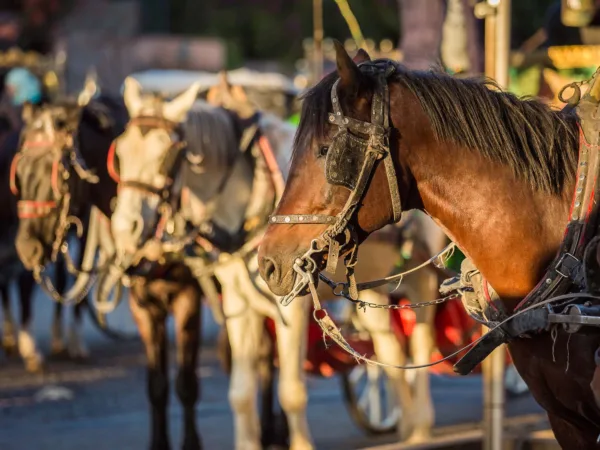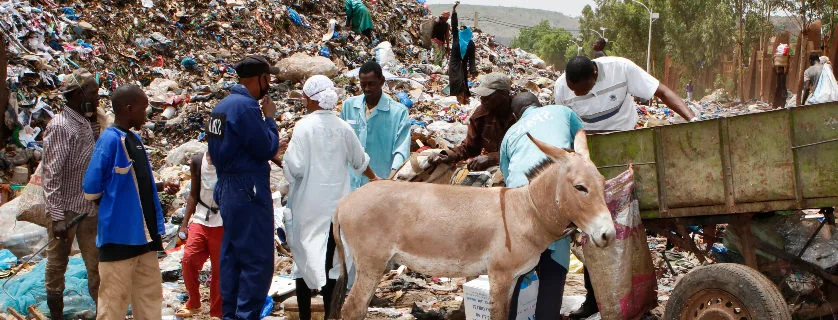
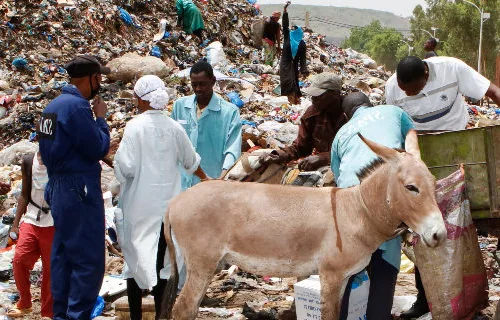
Zakaria bears a heavy load
Zakaria works grueling hours on the hot and dangerous rubbish dumps of Bamako, Mali alongside his young owner. Wounds caused by uncomfortable harnessing were making his work even harder and causing him intense pain and discomfort. Read how a regular SPANA mobile clinic provided the relief that this hardworking animal so sorely needed.
Nine-year-old Zakaria’s strength was failing; he had become lethargic and was struggling under the weight of his cart. For six hours a day, seven days a week the tired donkey works on the rubbish dumps of Bamako, Mali. His equally exhausted owner, Amadou works alongside him collecting scraps to sell on for a meagre income, the only means he has of supporting himself.
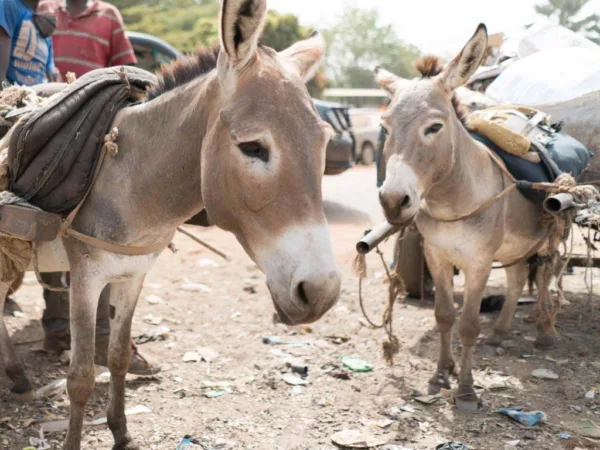
Amadou, a seasonal worker, was forced to find employment in Mali’s capital as a terrible drought had stripped his traditional farming community of its livelihood. Without Zakaria, Amadou would have no source of income and would struggle to survive. This is the reality for hundreds of young men just like Amadou who depend solely on their donkey’s wellbeing in order to prevent them from falling in to abject poverty. It is a precarious and stressful life for both human and animal alike.
When SPANA vets first examined Zakaria, they immediately recognised the tell tale signs of poor harnessing that plagues the health of working animals here. Although Amadou does everything he can to keep his hardworking animal comfortable, a combination of a poor fitted harness and a badly constructed cart had resulted in deep sores across Zakaria’s hind legs and back. Every time Zakaria stops to allow Amadou to unload rubbish, the cart would bump in to the animal’s hindquarters. Over time, this had resulted in deep wounds which would eventually become infected in the 40 C heat if left untreated.
During one of SPANA’s routine mobile clinic visits, our vets first cleaned Zakaria’s wounds before giving him anti-inflammatories and soothing the painful sores with antiseptic ointment. This offered Zakaria immediate relief from the throbbing pain of the injuries. They gave Amadou instructions on how to regularly clean and bandage the wounds and asked that the donkey be brought back the following week for a check up. Next, they swapped Amadou’s wire and rope harness for a soft, padded version constructed by a local women’s collective funded by SPANA. These humane harnesses are wrapped in a soft padding covered in cloth which prevent chafing and irritation. Finally, the vets examined the cart and added a breaching strap, a wide rope stretched between the shafts of the cart, which would help absorb the impact of braking and prevent the cart from repeatedly bumping in to Zakaria.
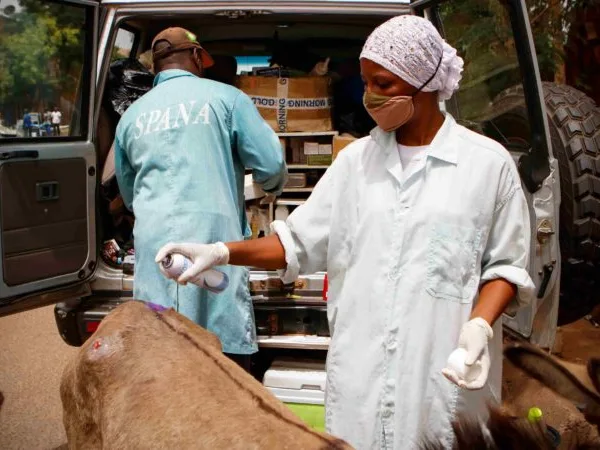
While treating Zakaria, the vets also took the opportunity to explain to the young owner that using a stick or whip wouldn’t help his donkey work faster and could potentially harm the animal. Like many donkey owners in this region, Amadou had been taught that the only way to drive their animals is with the aid of a stick or goad. However, thanks to SPANA’s education efforts, practices are changing as vets encourage owners to develop a better understanding of good animal husbandry. For owners like Amadou, this advice has a lasting impact on how he cares for and works with his donkey. Owner education by SPANA spread the message to other donkey owners on the dumps and, with time, harmful practices die out and kinder, more humane practices take their place.
The SPANA team will be carefully monitoring Zakaraia and Amadou during their future visits to the dumps, ensuring that Zakaria lives a happier and more comfortable life. Without SPANA’s mobile clinics here, life would be unbearable for hundreds of Bamako’s working animals. With ongoing support from our supporters, these clinics can reach even more suffering animals in need of care and compassion.

